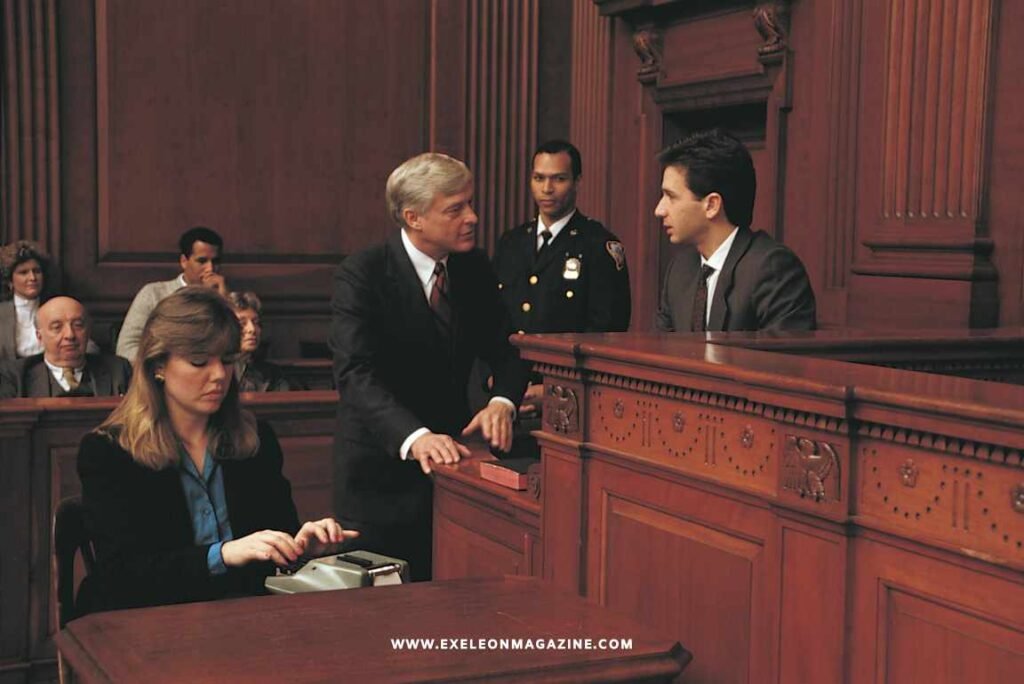A deposition is part of the discovery, which is what happens before a trial. Depositions help both sides in a case understand what people are going to say before the trial even begins. It’s a way for lawyers to get a preview of the witness’s story and see if they’re reliable.
They’ll also try to poke holes in your story or get you to say something that could be used against you later in court. This is why lawyers prepare their clients thoroughly before a deposition occurs. They’ll go over what kind of questions might come up, how to answer clearly without oversharing, and how to stay calm even if the questions get a little uncomfortable. A good lawyer will also not fail to educate you about the consequences of walking out of a deposition.
What Are the Consequences If You Leave a Deposition Without Permission?
Let’s say you’re in the middle of answering questions and suddenly decide just to get up and leave. That’s not like walking out of a regular meeting or quitting a school group. You can’t just walk out because you feel like it. This is where the legal system draws a hard line. There are serious consequences.
When people talk about the consequences of leaving a deposition, they’re referring to what’s legally called sanctions, which are punishments. If you walk out without a proper reason, you could be found in violation of court rules.
This is where you hear phrases like contempt of court, which is the court saying that you disrespected the legal process and you must face the consequences.
What Are Valid Reasons to Stop a Deposition?
There are a few exceptions. If you’re in the middle of a medical emergency, such as a panic attack, severe illness, or something else that physically prevents you from continuing, you can stop. The deposition can be paused and rescheduled at any time.
Another valid reason is if someone is seriously breaking the rules. For example, if a lawyer starts asking wildly inappropriate questions that have nothing to do with the case or starts yelling and making threats, your lawyer might step in and stop everything. But even in those situations, it’s not up to you to just leave. Your lawyer has to object, state a reason, and formally end the session.
There are clear legal standards for handling situations like this. You can’t just leave without saying anything or without a clear explanation that’s backed by legal rules. If you do, that’s when the consequences hit hard.
How Should You Handle Uncomfortable or Invasive Questions?
This is a common concern. Some questions can be personal. If a question makes you feel uncomfortable, you can pause and look to your lawyer. Your lawyer might object to the question. But here’s the tricky part: even if a lawyer objects, you still might have to answer unless the question breaks a specific rule.
There are a few types of questions that might be off-limits:
- Questions that dig into stuff that’s legally considered private or privileged. That could include things like what you’ve talked about with your doctor or therapist or confidential talks with your attorney.
- Questions that are irrelevant to the case. If you’re being asked something that has nothing to do with what’s being decided in court, your lawyer can challenge that.
But it’s not always black and white. Sometimes, the other side argues that something personal is still essential for the case. In that situation, it might go to a judge later to decide whether the question was fair.
Conclusion
Even if you feel like everything’s been said or you’re emotionally drained, you don’t get to call it quits on your own. If the deposition is going to end early, it needs to be agreed upon by everyone involved, or your lawyer needs to make a strong case for stopping.
The other side has a legal right to get your testimony, and the court expects you to show up and finish. If you don’t, you’re risking way more than just a delay—you could tank your case.
Also Read: Personal Injury Law: Expert Insights for Accident Victims










